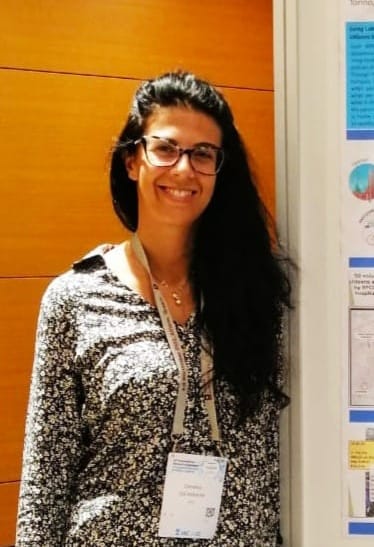You are here :
- EUTOPIA website
- Home
- Research & Innovation
- Fellowship
- SIF - Post-Doctoral Fellowships
SIF 3rd Cohort Fellows - Ornella Salimbene, University of Ljubljana

Researcher Summary
I am an environmental engineer with research experience in urban and regional development. My work focuses on participatory approaches to environmental issues, with a specific emphasis on air quality, human exposure, and the health impacts of environmental pollution.
I hold a PhD from the Politecnico di Torino, where I developed interdisciplinary research combining environmental engineering, public health, and urban planning. I strongly believe in the importance of involving local communities and stakeholders in research processes, particularly when addressing complex and pressing environmental challenges.
Currently, I coordinate the scientific programme CASES, which involves a team of 10 researchers. The program combines scientific research with public engagement and science communication, aiming to raise awareness, collect data, and co-produce knowledge with citizens. CASES is active in several European cities and represents a concrete example of how participatory science can contribute to environmental justice and policy innovation.
My research also explores how systemic approaches can be applied to better understand the intersection between environmental factors and social vulnerabilities. Through collaborations with academic institutions, local governments, and civil society organisations, I aim to support the design of more inclusive and resilient urban environments.
As part of the EUTOPIA network, I hope to expand international collaborations and continue developing projects in the regions that hosted my research, strengthening both the scientific and social impact of my work.
Curriculum Vitae
- Education
Ornella Salimbene is a Marie Sklodowska-Curie fellow in the Eutopia SIF action. Her project has received funding from the European Union's Horizon 2020 research and innovation program under the Marie Skłodowska-Curie grant agreement No. 945380.
- Experience
She is an Environmental Engineer with a master's degree from the Politecnico of Torino (Italy) and she conducted her PhD in Urban and Regional Development at the Interuniversity Department of Regional and Urban Studies and Planning (DIST) of the Politecnico of Torino.
Her main research field is focused on participatory approaches and new indicators for monitoring urban air quality with a focus on carbonaceous particles (Black Carbon).
- Publications/Research achievement
Research Project:
PA-MAP
(Participatory Approach for the Monitoring of Air Pollution in urban environments)
Black Carbon (BC-carbon component of fine particulate matter) is a promising indicator of air quality not yet regulated at European level, it is climate altering and has negative effects on the environment and human health. The project 'Participatory approach to monitoring air pollution in urban environment (PA-MAP)', will address a global problem on a local scale, promoting BC monitoring and regulation in the urban environment. The Project will adopt a participatory approach based on Citizen Science, its aim is to create an international team of students and citizens that will monitor the levels and variability of BC in three European cities (Ljubljana, Barcelona and Turin) using accurate instrumentation to carry out pervasive of monitoring by following predefined pedestrian paths in the cities involved. As part of the actions for change will be organize some Bike-Days in three European cities, during which citizens will participate in the atmospheric monitoring and will monitor the state of usability of cycle paths.
During the project will be develop qualitative analyzes through the dissemination of semi-structured questionnaires in the cities involved. Information will be collected relating to the resident’s perception of air quality, possible local sources and actions suggested by citizens to reduce exposure to atmospheric pollutants. PA-MAP results will provide public policy makers with an additional analytical tool for managing air quality monitoring plans and traffic management plans.


